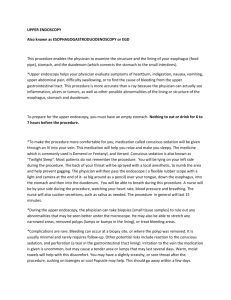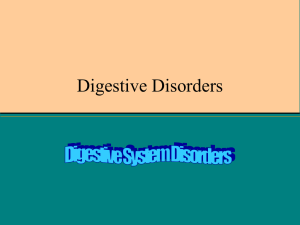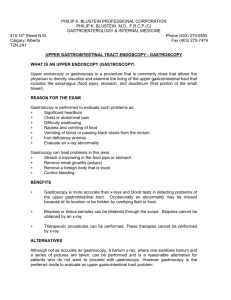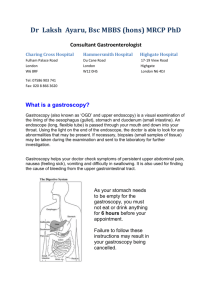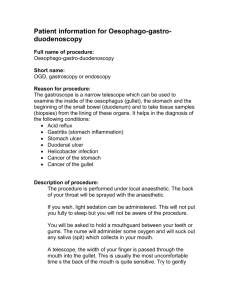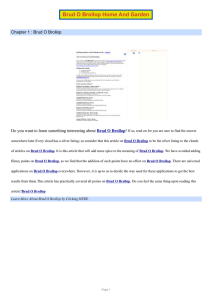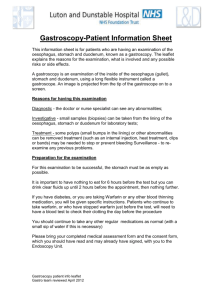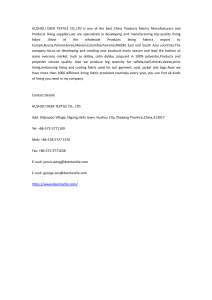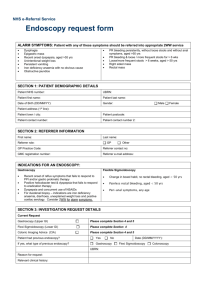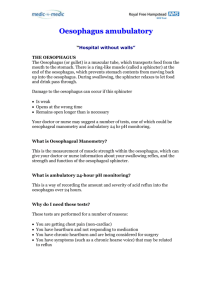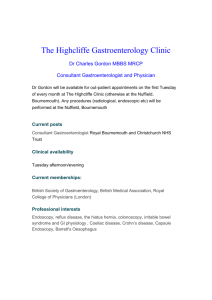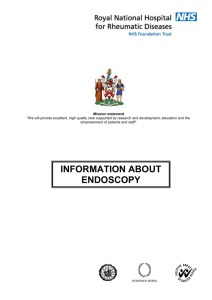as a Word Document
advertisement
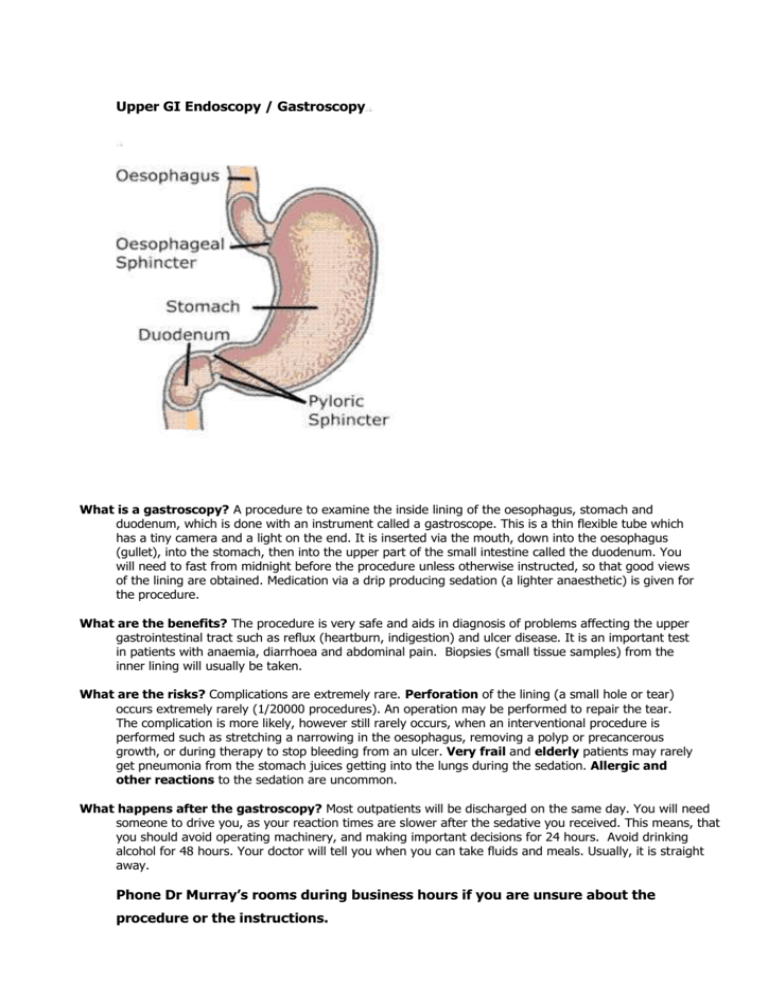
Upper GI Endoscopy / Gastroscopy What is a gastroscopy? A procedure to examine the inside lining of the oesophagus, stomach and duodenum, which is done with an instrument called a gastroscope. This is a thin flexible tube which has a tiny camera and a light on the end. It is inserted via the mouth, down into the oesophagus (gullet), into the stomach, then into the upper part of the small intestine called the duodenum. You will need to fast from midnight before the procedure unless otherwise instructed, so that good views of the lining are obtained. Medication via a drip producing sedation (a lighter anaesthetic) is given for the procedure. What are the benefits? The procedure is very safe and aids in diagnosis of problems affecting the upper gastrointestinal tract such as reflux (heartburn, indigestion) and ulcer disease. It is an important test in patients with anaemia, diarrhoea and abdominal pain. Biopsies (small tissue samples) from the inner lining will usually be taken. What are the risks? Complications are extremely rare. Perforation of the lining (a small hole or tear) occurs extremely rarely (1/20000 procedures). An operation may be performed to repair the tear. The complication is more likely, however still rarely occurs, when an interventional procedure is performed such as stretching a narrowing in the oesophagus, removing a polyp or precancerous growth, or during therapy to stop bleeding from an ulcer. Very frail and elderly patients may rarely get pneumonia from the stomach juices getting into the lungs during the sedation. Allergic and other reactions to the sedation are uncommon. What happens after the gastroscopy? Most outpatients will be discharged on the same day. You will need someone to drive you, as your reaction times are slower after the sedative you received. This means, that you should avoid operating machinery, and making important decisions for 24 hours. Avoid drinking alcohol for 48 hours. Your doctor will tell you when you can take fluids and meals. Usually, it is straight away. Phone Dr Murray’s rooms during business hours if you are unsure about the procedure or the instructions. Unless otherwise instructed, take your usual morning medications with some water on the day of the procedure. Morning procedure: Fast from midnight the night before for solids and dairy, however you can have clear fluids (water, clear drinks such as apple juice, Gatorade) up until 2 hours before the endoscopy admission time. Afternoon procedure: On the day of the procedure, early breakfast before 8am, then clear fluids up until 2 hours before admission time.
